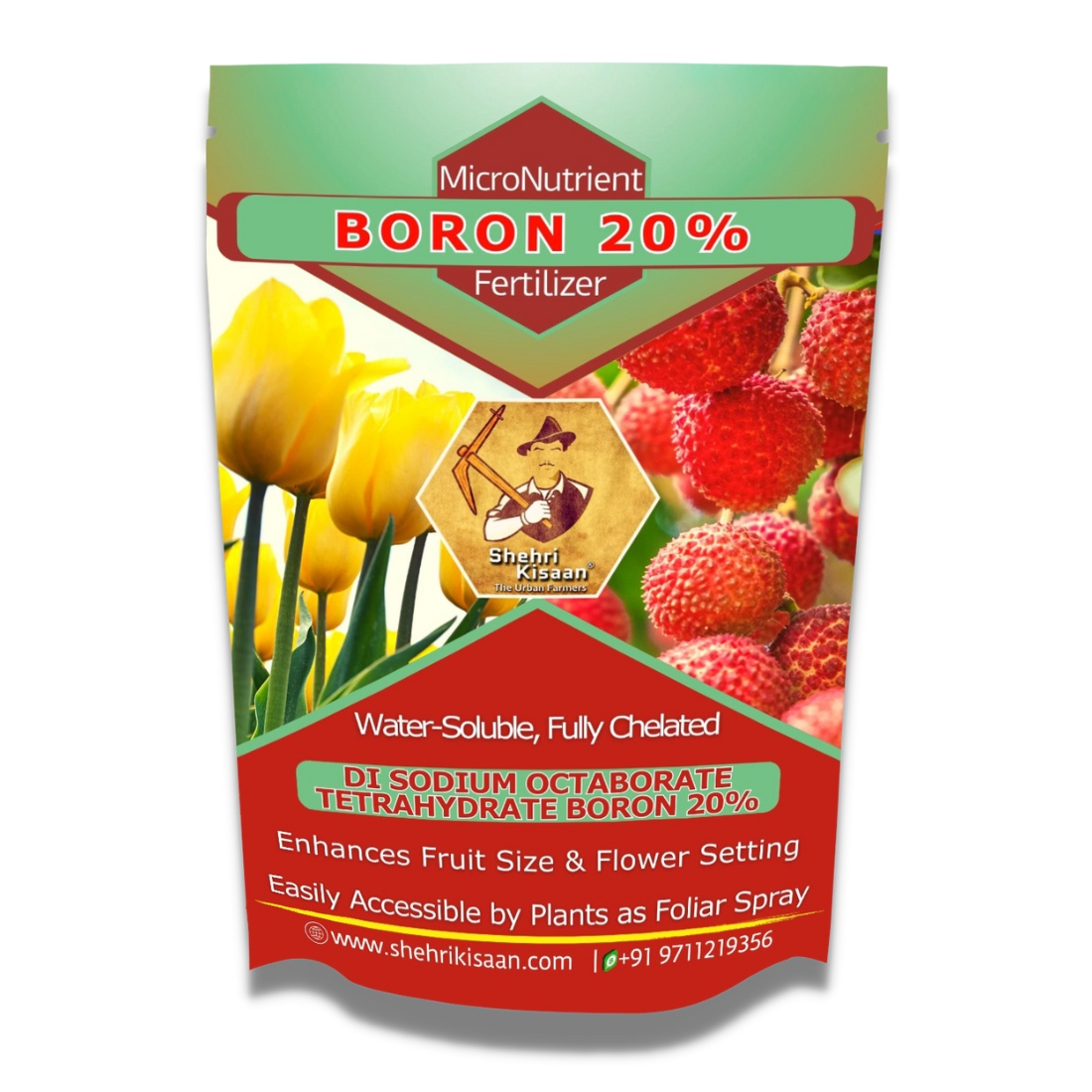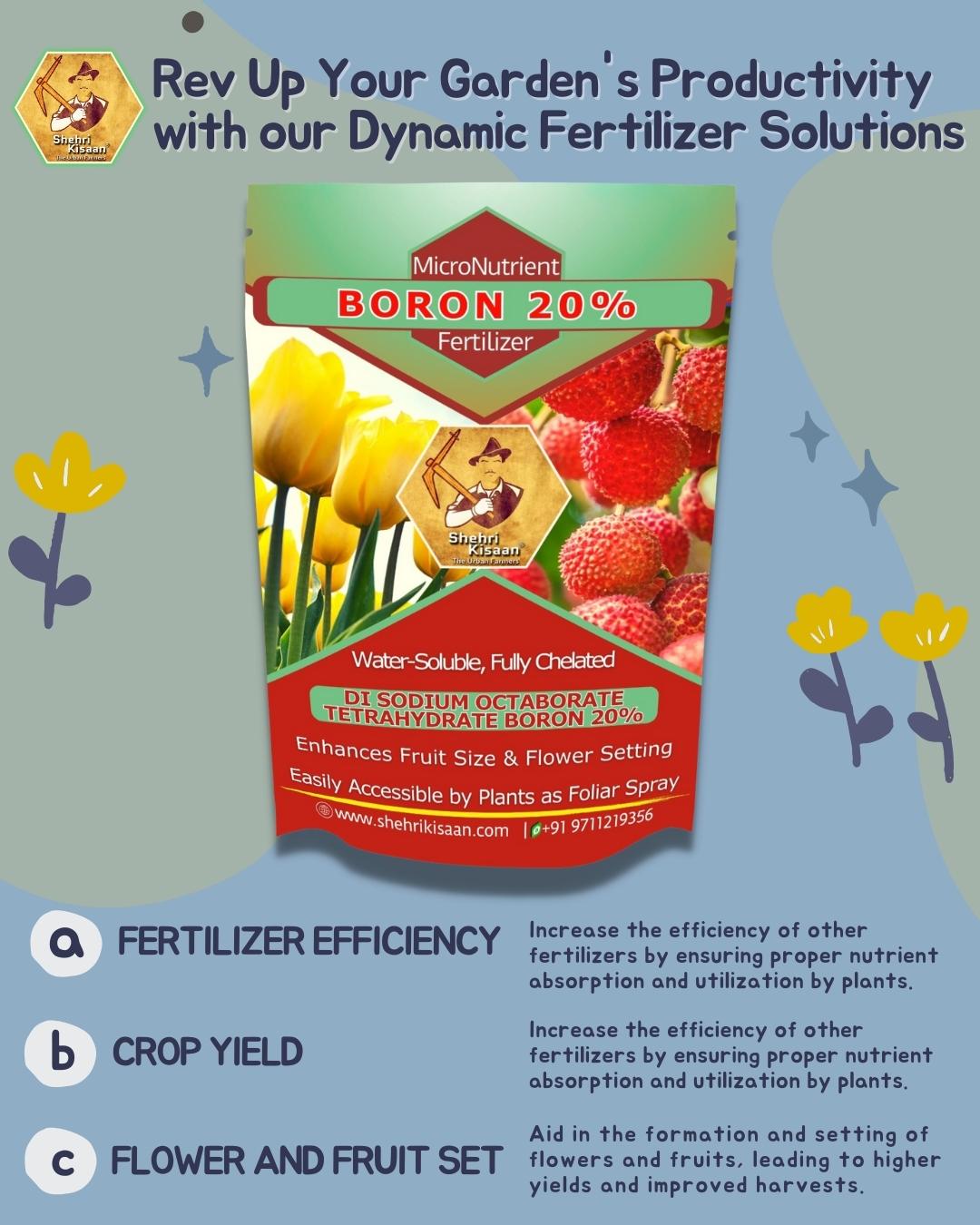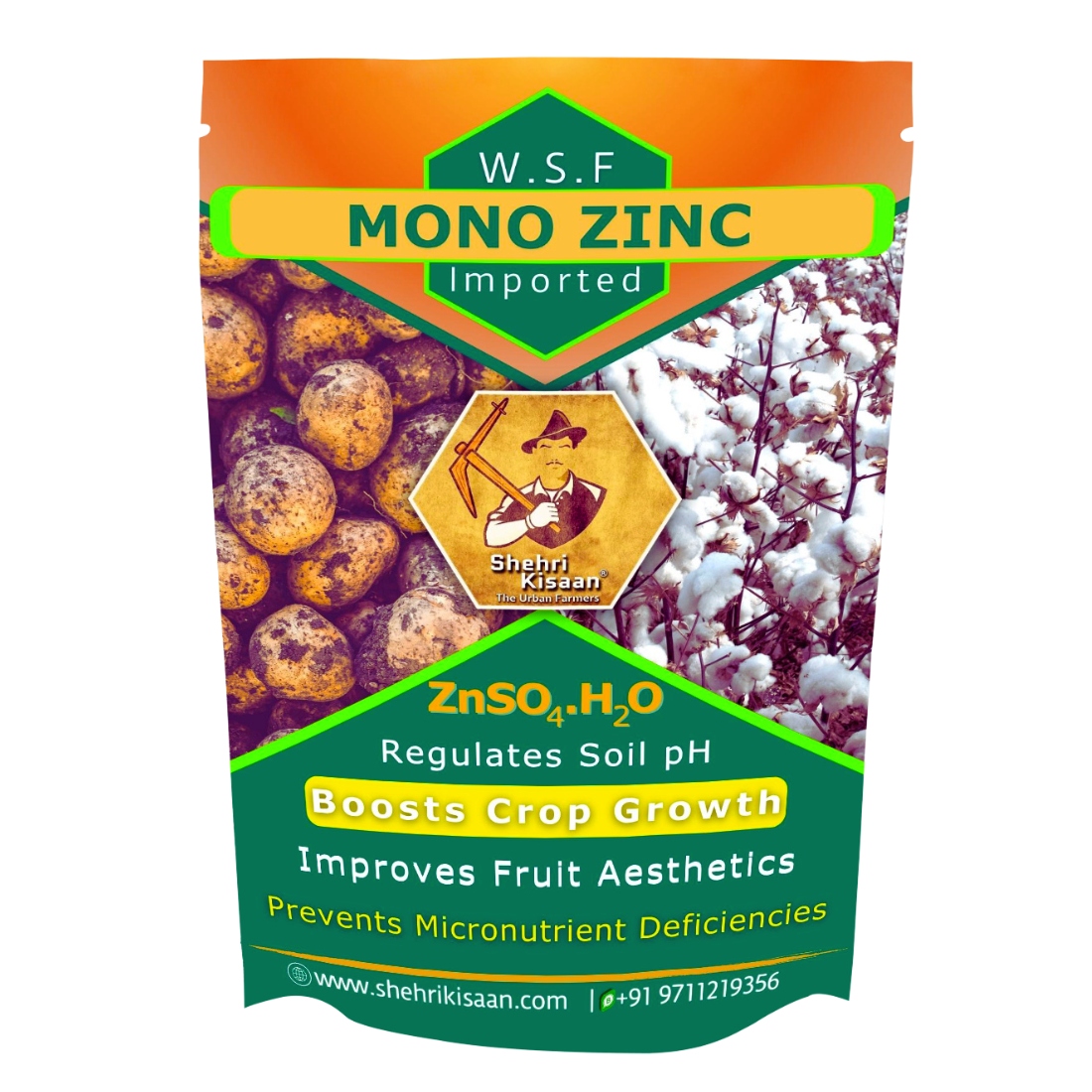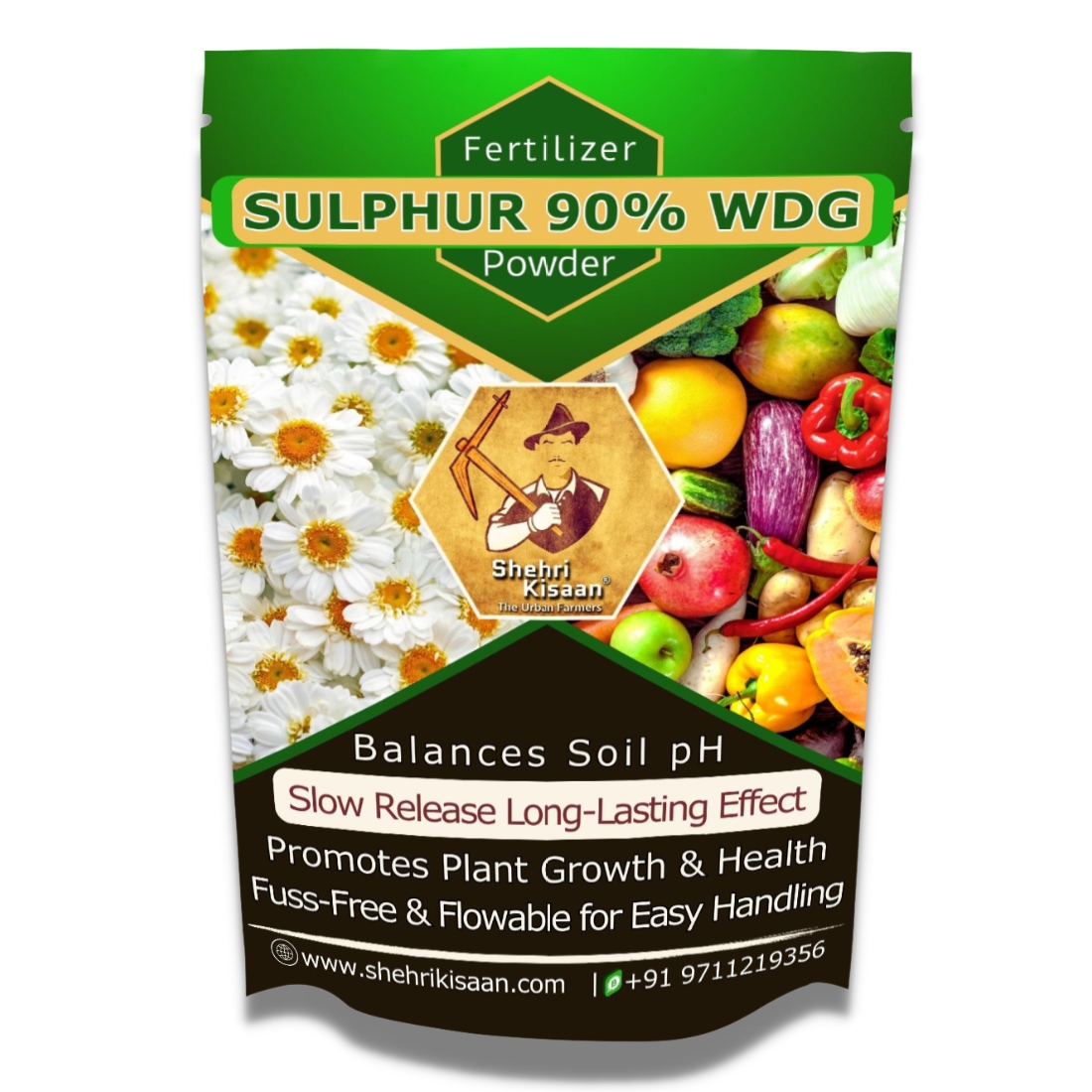-47%
Boron (20%)
₹199.00 – ₹6,199.00
Boron (Di Sodium Tetra Borate Penta Hydrate) (B 20%) | Essential Micronutrient for Plant Growth | Enhances Reproductive Development | Promotes Cell Wall Strength
SKU: N/A
Categories: Fertilizers, All
Boron (Di Sodium Tetra Borate Penta Hydrate) (B 20%) | Essential Micronutrient for Plant Growth | Enhances Reproductive Development | Promotes Cell Wall Strength
PRODUCT OVERVIEW OF BORON (B 20%)
Boron (Di Sodium Tetra Borate Penta Hydrate) is a highly pure and concentrated source of boron, an essential micronutrient for plant growth. With a high B 20% content, this product provides plants with the necessary boron levels to support various physiological processes, including reproductive development, cell wall strength, and nutrient uptake.
APPLICATION OF BORON (B 20%)
For foliar spray, dissolve 1 to 2 grams of Boron (B 20%) in a liter of water and spray uniformly on the plant foliage. For soil application, mix 3 to 5 grams of Boron (B 20%) per liter of water and apply around the plant’s root zone. Apply every 10 to 15 days during the active growth phase.
BENEFITS OF BORON (B 20%)
- Enhances flowering, fruit setting, and seed development.
- Improves pollen germination and fertilization.
- Promotes cell division and elongation.
- Strengthens cell walls, improving plant structure and resistance to disease.
- Increases nutrient uptake and utilization.
- Helps regulate carbohydrate metabolism.
USES OF BORON (B 20%)
- Ideal for crops with high boron demands, such as fruits, vegetables, and legumes.
- Beneficial for flowering plants, including roses, orchids, and hibiscus.
- Suitable for foliar application, fertigation, and hydroponic systems.
PACKAGING OF BORON (B 20%)
- 100 grams and 250 grams: Packaged in Zip Lock Pouch with branded outer packaging.
- 450 grams and 950 grams: Packed in Heavy Duty Double Layer Branded LD Packaging.
- 5kg, 10kg, and 25kg: Available in Shehri Kisaan branded Gunny Bags, with an inner heavy-duty plastic packet and outer Gunny Bag.
FAQs RELATED TO BORON (B 20%)
Q. Is boron suitable for all types of plants?
Ans. Boron is essential for all plants, but the optimal application rate may vary depending on the specific crop’s boron requirements.
Q. Can boron deficiency be identified in plants?
Ans. Yes, boron deficiency can be identified through symptoms such as stunted growth, yellowing or necrosis of younger leaves, and poor flowering or fruiting.
Q. How often should boron be applied to plants?
Ans. Boron should be applied every 10 to 15 days during the active growth phase of plants to ensure an adequate supply.
Q. Can boron be mixed with other fertilizers?
Ans. Yes, boron can be mixed with other fertilizers. However, it is recommended to perform a compatibility test before mixing with other products.
Q. Can boron be used in hydroponic systems?
Ans. Yes, boron can be used in hydroponic systems by following the recommended application rates and adjusting the nutrient solution accordingly.
Q. What is the role of boron in seed development?
Ans. Boron plays a crucial role in seed development, promoting proper fertilization, embryo development, and seed filling.
Q. Can boron toxicity occur in plants?
Ans. Yes, excessive application of boron can lead to toxicity in plants, resulting in symptoms such as leaf burn and reduced growth. It is important to follow recommended application rates.
Q. Is boron important for root development?
Ans. Yes, boron is involved in root elongation and development, supporting overall root health and nutrient uptake.
Q. Can boron deficiency affect fruit quality?
Ans. Yes, boron deficiency can negatively impact fruit quality, leading to deformities, reduced size, and decreased shelf life.
Q. Can boron improve pollen viability?
Ans. Yes, boron improves pollen viability, enhancing successful pollination and fruit set.
Q. Can boron deficiency be corrected by foliar application?
Ans. Yes, foliar application of boron can help correct temporary boron deficiencies, providing a quick supply of the nutrient to the plant.
| weight | 50g, 100g, 250g, 450g, 950g, 5KG, 10KG, 25KG |
|---|
Be the first to review “Boron (20%)” Cancel reply








 Home
Home  Whishlist
Whishlist  Compare
Compare  Checkout
Checkout
Reviews
There are no reviews yet.